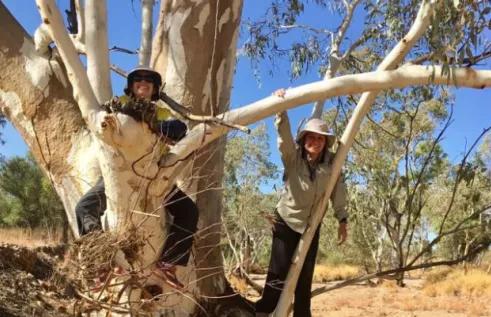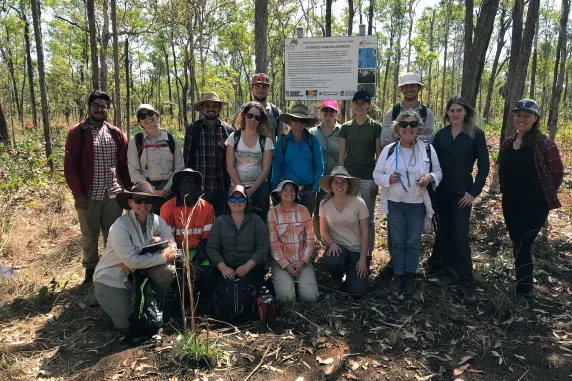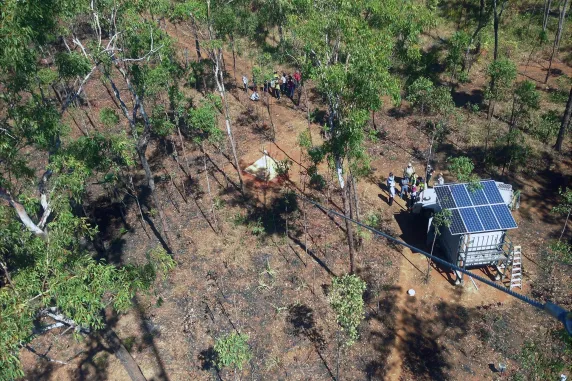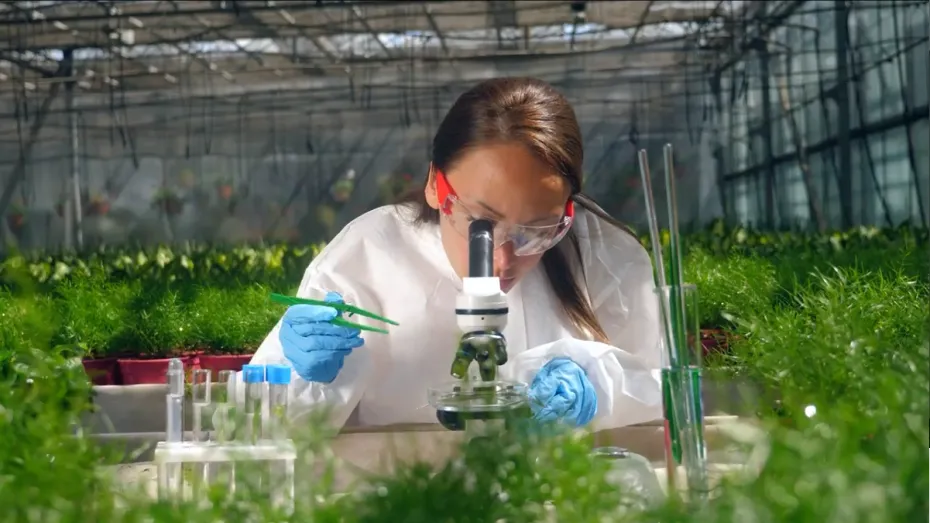
The growing complexity of environmental problems is creating a need for scientists with rigorous, interdisciplinary training in the environmental sciences.
Here at CDU we integrate the physical, biological and chemical sciences to study the environment and discover solutions to global environmental problems.
There are significant opportunities for environmental science across a range of diverse careers. You could end up working from home or travelling the world. You could be doing desk, laboratory or field work, or some combination thereof.
Courses
Diploma of Science
The Diploma of Science gives the student the opportunity to achieve a qualification in just one year. The Diploma provides a taste of university for students unsure about whether further education is the right pathway for them or allows those already working in related careers to upskill with another qualification. It is very flexible and students can explore a variety of science concepts, theories and principles in different fields such as general science, geographic information science, environmental science and medical science until you find the one that resonates with you. Students can also use this diploma for a full years credit towards a bachelor degree at CDU.
Bachelor of Science
Scientists are adventurers, driven by curiosity to seek answers to the many questions we have about the world. Scientists develop new approaches and solve problems to improve our health, environment and lifestyle.
The Bachelor of Science offers flexibility and diversity with a focus on gaining professional experience whether as an ecologist, spatial scientist, biomedical scientist or in other science fields. Students may also choose to integrate studies from a variety of areas outside of traditional science disciplines into their science degrees. Graduates are equipped to demonstrate and apply an understanding of their chosen area of science, including concepts, theories, and principles, to practice in real situations. Students become effective problem solvers able to think globally, apply logical and critical thinking, apply an understanding of scientific and technological factors and are able to consider issues from various cultural, economic and other societal perspectives.
Course structure
The Bachelor of Science consists of common, specialist elective and elective units. Students take specialist elective units from within a major and additional elective units as described in the course outline. Elective units can include any CDU undergraduate units, including other science units or units from other disciplines offered by the university. Students may complete majors in:
- Ecology
- Geographic Information Science
- General Science
- Biomedical Science.
Career opportunities
A science degree can open up a vast range of career options in industry, government, private companies, non-government organisations and the community sector. Career opportunities may be available as a biologist, ecologist, spatial scientist, biomedical scientist, laboratory assistant, project manager, advisor or consultant.
Bachelor of Science Honours program
The Bachelor of Science Honours program is a stand-alone award, available to graduates with a science degree, who fulfil the entry requirements. The honours degree is designed to give students a competitive advantage for employment, or to provide a first step in a research or academic career.
The course provides an opportunity for students to:
- Develop an advanced level of understanding about a specific aspect of science in depth
- Gain experience and training in research techniques and principles
- Develop written and oral communication skills
- Learn and demonstrate project management skills
- Work collaboratively on projects with peers, industry and government partners.
Course structure
The Bachelor of Science Honours provides an opportunity for students to research a particular area in depth and gain experience in project management. Students develop these skills through pursuing in-depth research, under the guidance of experienced researchers, with coursework also targeted to provide appropriate research training. While undertaking their research project, students are mentored and advised by experts in the relevant discipline.
Honours students are expected to successfully manage a complex project as well as demonstrate research skills and technical or clinical skills.
The course structure consists of a major research project (thesis), a core coursework unit on research writing unit and an elective coursework unit relevant to the discipline. Over the duration of their program, students need to complete a total of 80 credit points, comprising of 60 credit points for the thesis and 20 credit points of coursework units. A full time study load for one semester is 40 credit points. Standard coursework units are typically 10 credit points each.
The major component of this course is a two semester (full-time) research project.
This research project can be done in a wide range of fields, including environmental science (e.g. aquaculture, biochemistry, botany, marine, freshwater and terrestrial ecology, molecular biology, zoology); biomedical science, nursing, midwifery, social work and other allied health areas; sports science; chemistry; GIS and remote sensing; and information technology.
The other components of the course are two course-work units designed to develop specific research skills, including the communication of research results which are studied concurrently with the research project.
The program is fully flexible, offering:
- 1 year full time study or 2 years part time study
- first or second semester start
- internal or external study mode.
Career opportunities
As well as providing advanced, and often a prerequisite, preparation for work in industry and government, Honours qualifications are also essential preparation for research work at Master and Doctoral levels. Honours research projects at Charles Darwin University may be hosted by a range of Colleges and Institutes including the world ranked Research Institute for Environment and Livelihoods and Menzies School of Health Research.
Career opportunities exist in roles such as scientist, environmental scientist, exercise and sports scientist, nurse or midwifery researcher, clinical nurse or midwifery specialist/consultant, environmental manager, exercise and sport scientist, biomedical scientist, teacher, scientific technical officer and laboratory manager. Students gain professional recognition and are introduced to research practices and culture. Many students develop professional networks with researchers and managers in industry and in government during their Honours research.
Bachelor of Environmental Science
With the Bachelor of Environmental Science your academic studies will be combined with practical experience, allowing you to play an active role in the protection and conservation of the environment.
Master of Environmental Management
The Master of Environmental Management complements existing science qualifications if you are a graduate starting out or an established professional looking to broaden or deepen your professional skill set.
Graduate Certificate of Spatial Science
The Graduate Certificate in Spatial Science complements your current science qualifications and will further develop your professional skill set. This course is designed for professionals, across a wide-range of vocations, seeking to gain expertise in spatial science at postgraduate level.
This stand-alone course belongs to a pathway between graduate certificate, graduate diploma and Master of Environmental Management.
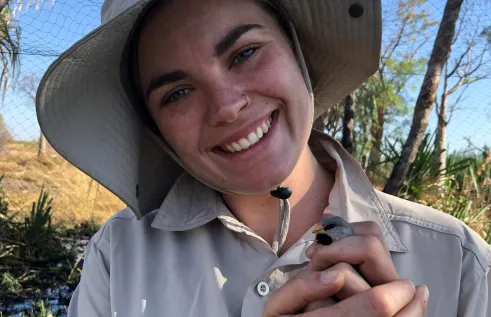
I studied enviro science to make a difference: Meet Brittany
When Brittany started a science degree after year 12, she wasn’t convinced it was for her. But a two-year travel stint changed that. She returned home with a new-found awareness of environmental issues and came back to CDU to finish the science degree she’d started.
Read more